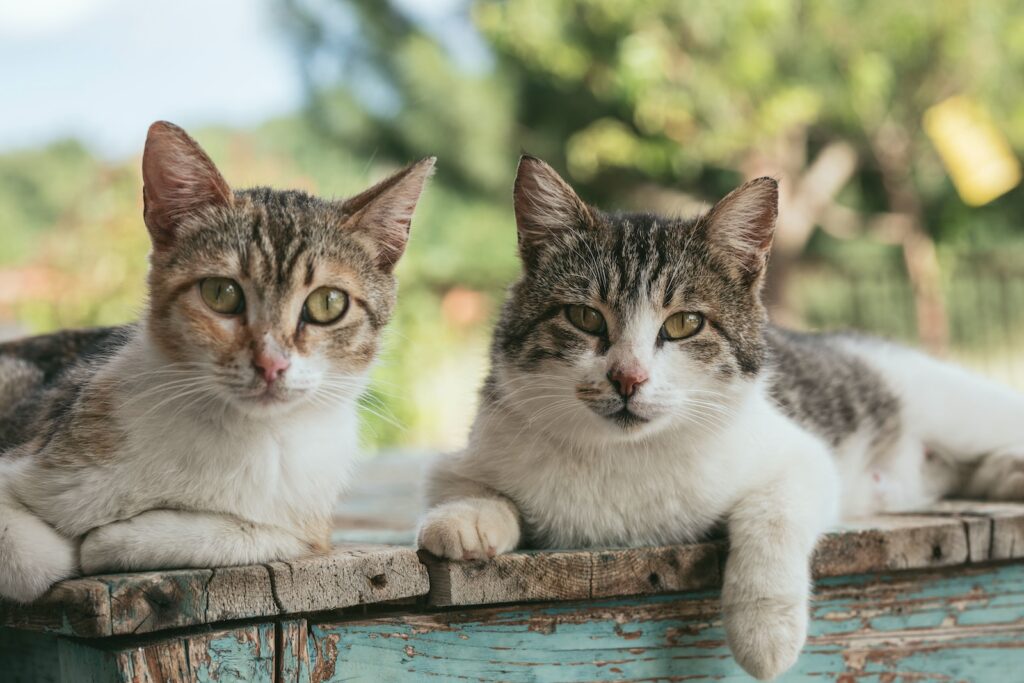Can Cats Eat Pomegranate? — No, They Can’t
Pomegranate is not safe for cats to consume. While this fruit offers various health benefits for humans, it can have adverse effects on feline health. Cats have different dietary requirements compared to humans, and certain foods that are safe for us can be toxic to them. Pomegranate falls into this category and should be avoided when it comes to feline nutrition.
Is It Safe for Kittens to Consume Pomegranate?
Kittens should not be given pomegranate either. Just like adult cats, kittens have a delicate digestive system that cannot properly process the fruit’s components. It is best to stick to a balanced and appropriate diet specifically designed for kittens to ensure their optimal growth and development.
Risks Associated with Feeding Pomegranate to Kittens
Feeding pomegranate to kittens can lead to digestive issues such as stomach upset, diarrhea, and vomiting. Their digestive system is still developing, and introducing unfamiliar and potentially harmful foods can disrupt the balance, causing discomfort and potential health complications.
Why Pomegranate is Not Recommended for Cats
Acidity and Digestive Upset
Pomegranate is highly acidic, which can lead to gastrointestinal distress in cats. Consuming acidic foods can cause stomach irritation, leading to symptoms like nausea, vomiting, and diarrhea. Cats have a delicate digestive system that cannot tolerate highly acidic foods, making pomegranate unsuitable for feline consumption.
Toxicity and Potential Allergic Reactions
Pomegranate contains certain compounds, such as tannins, that can be toxic to cats. Ingesting these substances could lead to adverse effects on their health, including kidney damage and allergic reactions. It is best to avoid exposing cats to potential toxins and allergens present in pomegranate.
Potential Choking Hazard
Pomegranate seeds can pose a choking hazard to cats. Cats have a small throat opening and might accidentally swallow whole seeds, which can get lodged and cause choking or blockage in their digestive system. Preventing access to pomegranate seeds is crucial to avoiding such risks.
Known Health Issues in Cats from Consuming Pomegranate
Feeding cats pomegranate can lead to various health issues. Some common problems include digestive discomfort, diarrhea, vomiting, gastrointestinal inflammation, and potential kidney damage. Cats may also exhibit allergic reactions to the fruit, such as facial swelling, itching, and difficulty breathing.
What to Do If a Cat Has Consumed Pomegranate?
- Seek Veterinary Assistance: If a cat has ingested pomegranate, it is important to consult a veterinarian immediately. They can provide guidance based on the specific situation and determine the necessary steps to ensure the cat’s well-being.
- Monitor Symptoms: Keep a close eye on the cat’s behavior and monitor for any signs of gastrointestinal distress, allergic reactions, or other abnormal symptoms. Note down any changes in appetite, litter box habits, or overall demeanor to share with the veterinarian.
- Avoid Self-treatment: Refrain from attempting to induce vomiting or administering any home remedies without professional guidance. The veterinarian will be able to provide the most appropriate course of action based on the cat’s individual circumstances.
Safe Alternatives to Pomegranate for Cats
Instead of feeding cats pomegranate, consider providing safe and suitable alternatives. Some cat-friendly fruits include small quantities of mashed or pureed bananas, blueberries, or watermelon (without seeds). However, always introduce new foods gradually and observe their impact on your cat’s health.
Conclusion
In conclusion, it is essential to avoid feeding pomegranate to cats. The fruit’s acidity, potential for toxicity, and choking hazards make it unsuitable for feline consumption. Cats have specific dietary requirements that differ from humans, and it is crucial to provide them with a balanced diet tailored to their needs. Prioritize their safety and health by avoiding pomegranate and consulting a veterinarian for appropriate dietary advice.






